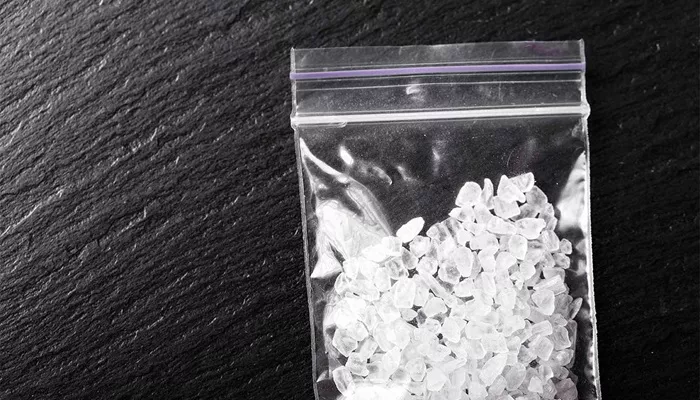Cardiac arrhythmia, a condition where the heart beats irregularly, is a significant concern in medical practice. While many factors can trigger arrhythmias, recreational drug use is one of the most preventable. In this article, we’ll explore which recreational drugs can cause cardiac arrhythmias, the mechanisms behind their effects, and the importance of awareness and prevention.
What Is Cardiac Arrhythmia?
Cardiac arrhythmia refers to any change from the normal sequence of electrical impulses that cause the heart to beat. These irregularities can lead to the heart beating too quickly (tachycardia), too slowly (bradycardia), or erratically. Some arrhythmias may be harmless, while others can be life-threatening, increasing the risk of stroke, heart failure, or sudden cardiac arrest.
How Recreational Drugs Impact Heart Rhythm
Recreational drugs can significantly alter the heart’s electrical activity, leading to arrhythmias. These substances affect the autonomic nervous system, electrolyte balance, and the myocardial cells, all of which play critical roles in maintaining a regular heartbeat.
Cocaine And Cardiac Arrhythmia
Cocaine is a powerful stimulant that has been closely linked to arrhythmias. It increases the levels of norepinephrine in the heart, leading to increased heart rate and blood pressure. This heightened state can cause ventricular arrhythmias, which are particularly dangerous. Chronic use of cocaine can also lead to structural heart damage, increasing the risk of arrhythmias even further.
SEE ALSO: What Is The Best Beta Blocker for Palpitations?
Methamphetamine And Cardiac Arrhythmia
Methamphetamine, another potent stimulant, has similar effects to cocaine but can be even more damaging.
Methamphetamine use leads to an increase in catecholamines, which are chemicals that stimulate the heart. The result is a high likelihood of developing tachycardia and other arrhythmias. Chronic methamphetamine use is also associated with cardiomyopathy, a condition where the heart muscle becomes weakened, further increasing the risk of arrhythmias.
MDMA (Ecstasy) And Cardiac Arrhythmia
MDMA, commonly known as ecstasy, is popular for its euphoric effects. However, it significantly impacts the cardiovascular system. MDMA increases heart rate and blood pressure, which can lead to arrhythmias. The drug also disrupts the balance of electrolytes in the body, such as sodium and potassium, which are crucial for maintaining a regular heart rhythm. Severe cases can result in fatal arrhythmias, particularly when used in hot environments or with other substances.
Cannabis And Cardiac Arrhythmia
Cannabis has complex effects on the cardiovascular system. While some studies suggest it may have a calming effect, it can also cause tachycardia and hypotension, leading to arrhythmias. The risk is particularly high when cannabis is combined with other substances like alcohol. The exact mechanism by which cannabis causes arrhythmias is not entirely understood, but it likely involves its effects on the autonomic nervous system and the heart’s electrical conduction system.
Alcohol And Cardiac Arrhythmia
Alcohol is one of the most commonly consumed substances worldwide, but it poses significant risks to heart health, particularly in large quantities. Binge drinking can lead to “holiday heart syndrome,” where even those without pre-existing heart conditions develop arrhythmias, usually atrial fibrillation. Chronic alcohol use can also cause cardiomyopathy, increasing the risk of long-term arrhythmias.
Synthetic Cannabinoids And Cardiac Arrhythmia
Synthetic cannabinoids, often sold under names like “Spice” or “K2,” are particularly dangerous. These substances can cause severe cardiovascular reactions, including arrhythmias, due to their unpredictable potency and the lack of regulation in their production. The exact impact on the heart varies, but reports of sudden cardiac death related to synthetic cannabinoid use underscore the risks involved.
Opiates And Cardiac Arrhythmia
Opiates, including heroin and prescription painkillers like oxycodone, can also lead to arrhythmias, particularly in cases of overdose. These drugs slow the heart rate and respiration, which can lead to bradycardia and other arrhythmias. The combination of opiates with other substances, such as benzodiazepines or alcohol, further increases the risk of life-threatening arrhythmias.
The Role of Polysubstance Abuse in Arrhythmia Risk
Many users of recreational drugs do not limit themselves to a single substance. Polysubstance abuse, where multiple drugs are used simultaneously, can exponentially increase the risk of arrhythmias. For example, combining stimulants like cocaine or methamphetamine with alcohol or opiates can lead to unpredictable and severe cardiac effects. The interaction between these substances can disrupt the heart’s electrical activity in complex ways, leading to potentially fatal arrhythmias.
Prevention And Awareness
Understanding the link between recreational drug use and cardiac arrhythmia is crucial for prevention. Education and awareness campaigns should focus on the dangers of these substances, particularly among younger populations who may be more likely to experiment with drugs. Healthcare providers should also screen for drug use in patients presenting with arrhythmias, as early intervention can prevent further heart damage.
Conclusion
Cardiac arrhythmia is a serious and potentially life-threatening condition that can be triggered by the use of recreational drugs. Substances such as cocaine, methamphetamine, MDMA, cannabis, alcohol, synthetic cannabinoids, and opiates have all been linked to the development of arrhythmias. The mechanisms vary, but the common thread is the disruption of the heart’s normal electrical activity.


